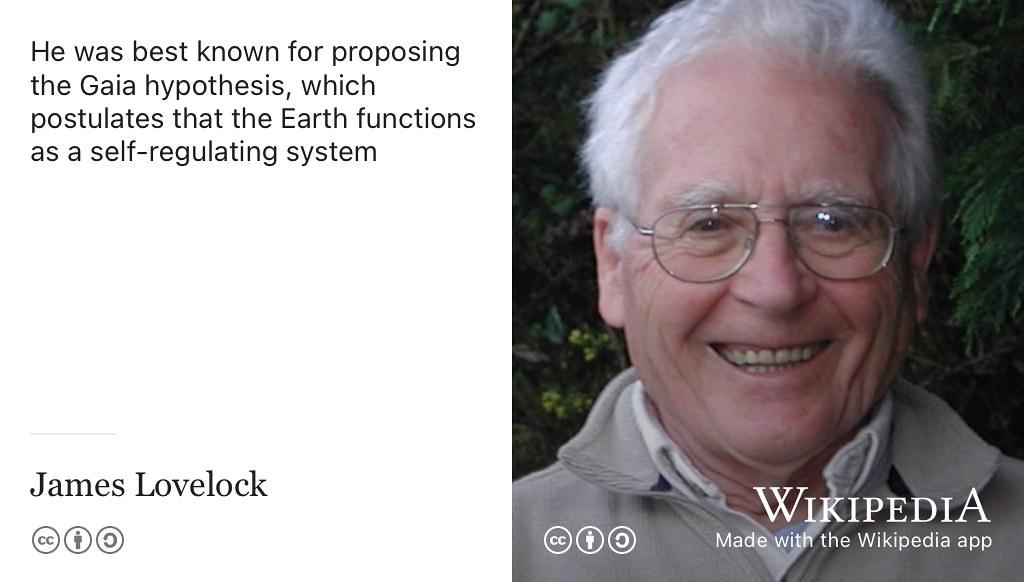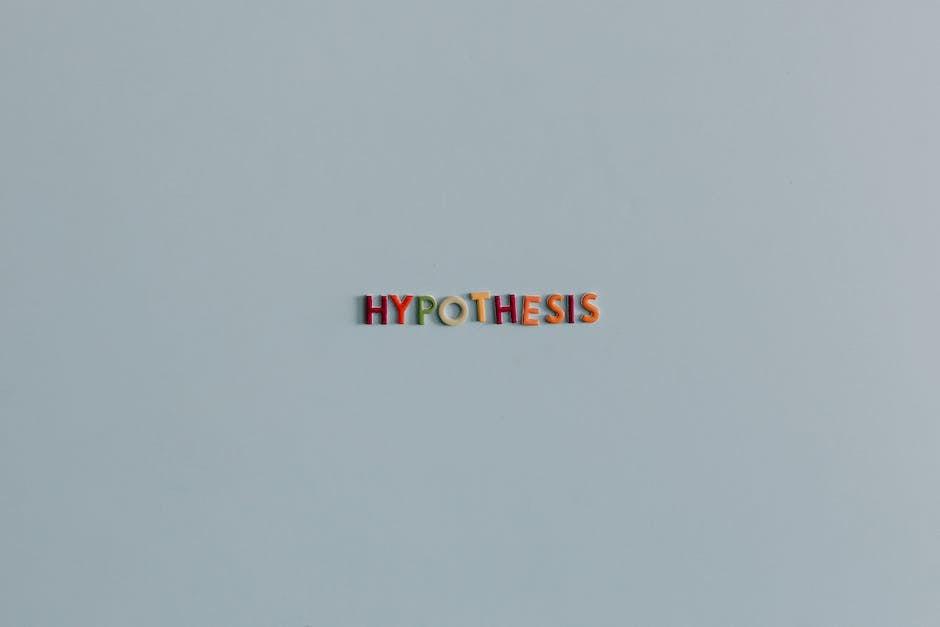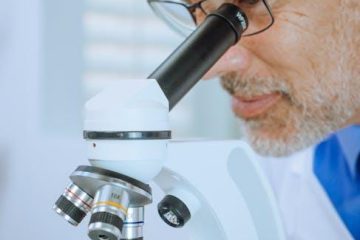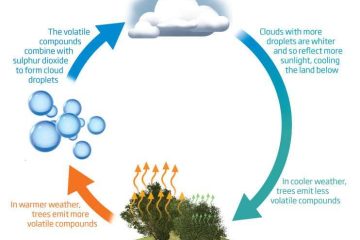In a world brimming with scientific theories and ecological musings, the Gaia Hypothesis stands tall as a captivating concept that intertwines the delicate balance of Earth’s ecosystems with the harmony of living organisms. But what exactly does “Gaia Hypothesis la gi” entail? Let’s embark on a journey to unravel the mysteries behind this intriguing idea and explore the profound connections between our planet and all its inhabitants. Join us as we delve into the realms of nature, science, and the enigmatic essence of Gaia.
Table of Contents
- Understanding the Gaia Hypothesis: A Deep Dive
- Exploring the Significance of Gaia Hypothesis in Science
- Implications of Gaia Hypothesis on Environmental Conservation
- Practical Applications of Gaia Hypothesis in Sustainable Practices.
- Q&A
- Key Takeaways
Understanding the Gaia Hypothesis: A Deep Dive
The Gaia Hypothesis, formulated by James Lovelock in the 1960s, proposes that the Earth operates as a self-regulating system, akin to a living organism. This captivating concept suggests that the planet and all its inhabitants are interconnected in a complex web of interactions that maintain the conditions necessary for life to thrive.
Key Points to Explore in Gaia Hypothesis:
- Interconnectedness: Dive into how different components of the Earth system, such as the atmosphere, oceans, and living organisms, interact and influence each other.
- Dynamic Balance: Explore the idea of Gaia maintaining a delicate balance to ensure stability and sustainability for all life forms on Earth.
- Implications: Discuss the implications of the Gaia Hypothesis on environmental conservation efforts and our understanding of the Earth as a whole.
Unraveling the Gaia Hypothesis further reveals the intricate ways in which nature orchestrates a symphony of life on our planet. It challenges us to rethink our relationship with the environment and consider the Earth not just as a collection of disparate entities, but as a unified and sentient being in its own right. As we delve into this thought-provoking concept, we come to appreciate the beauty and complexity of our planet in a whole new light.
Exploring the Significance of Gaia Hypothesis in Science
The Gaia hypothesis, proposed by scientist James Lovelock, introduces a fascinating perspective that views the Earth as a complex, self-regulating system. It suggests that the Earth operates as a single organism where living beings and their inorganic surroundings are interconnected to maintain a stable and conducive environment for life to thrive. This groundbreaking concept challenges traditional views of the Earth as a passive entity, highlighting the intricate balance and feedback mechanisms that sustain life on our planet.
One key aspect of the Gaia hypothesis is the idea that the Earth’s biosphere and geosphere interact dynamically to create conditions favorable for life. This holistic approach emphasizes the Earth as a living entity that responds to changes to maintain equilibrium. By acknowledging the interconnectedness of all living and non-living components, the Gaia hypothesis fosters a deeper understanding of how the Earth functions as a unified and self-regulating system. Embracing this perspective can lead to innovative solutions for environmental challenges and inspire a more harmonious relationship with our planet.
Implications of Gaia Hypothesis on Environmental Conservation
The Gaia Hypothesis proposes that the Earth functions as a self-regulating system to maintain conditions suitable for life. This interconnectedness of the planet’s physical and biological processes emphasizes the importance of preserving ecological balance. By acknowledging the Earth as a living organism, environmental conservation efforts can be guided by a deeper understanding of the intricate relationships between all components of the biosphere.
Implementing sustainable practices in agriculture, energy production, and waste management becomes paramount when viewing the Earth as a single, holistic entity. Embracing the Gaia Hypothesis challenges us to reconsider our impact on the environment and strive towards harmony with nature. By recognizing the interconnectedness of all living beings and ecosystems, we can cultivate a mindset that fosters sustainability and preservation for future generations.
| Key Point | Implication |
|---|---|
| Interconnectedness | Emphasizes the need for holistic conservation strategies |
| Sustainability | Promotes long-term environmental preservation |

Practical Applications of Gaia Hypothesis in Sustainable Practices
The Gaia Hypothesis, originating from the concept of Mother Earth as a living organism, holds immense potential in shaping sustainable practices across various fields. One practical application lies in agriculture, where embracing the interconnectedness of ecosystems can lead to regenerative farming methods that prioritize soil health and biodiversity.
Moreover, in urban planning, incorporating Gaia principles can inspire the design of resilient cities that work in harmony with nature, promoting green spaces, efficient energy use, and reduced waste generation. By recognizing the Earth as a complex, self-regulating system, we can strive towards a more sustainable future that nurtures both the planet and its inhabitants.
Q&A
**Q&A: Unveiling the Mysteries of the Gaia Hypothesis**
Q: What is the Gaia Hypothesis all about?
A: The Gaia Hypothesis proposes that the Earth functions as a self-regulating system to maintain the conditions needed for life to thrive. It suggests that the biosphere and the physical components of Earth are interconnected and operate together as a complex system.
Q: Where did the concept of the Gaia Hypothesis originate?
A: The Gaia Hypothesis was first introduced by scientist James Lovelock in the 1970s. Inspired by Greek mythology, where Gaia was the primal Greek goddess personifying the Earth, Lovelock’s hypothesis revolutionized how we perceive our planet.
Q: How does the Gaia Hypothesis influence environmental thinking?
A: The Gaia Hypothesis challenges us to view Earth as a single, self-sustaining organism. It urges us to rethink our relationship with the planet and emphasizes the importance of preserving ecological balance for the well-being of all life forms.
Q: La gi? What does ‘la gi’ mean in the context of the Gaia Hypothesis?
A: In Vietnamese, “la gi” translates to “what is it” in English. So, when someone asks “Gaia Hypothesis la gi?”, they are essentially inquiring about the meaning or essence of the Gaia Hypothesis.
Q: How does the Gaia Hypothesis impact our approach to environmental conservation?
A: The Gaia Hypothesis encourages a holistic view of environmental conservation by promoting the idea that all living beings and their environment are interconnected. By recognizing this interdependence, we are inspired to adopt more sustainable practices to protect our planet.
Q: Are there any criticisms of the Gaia Hypothesis?
A: While the Gaia Hypothesis has sparked intriguing discussions and reflections, it has also faced criticism for being too anthropocentric or teleological. Some scientists argue that the Earth’s systems do not exhibit the type of purposeful behavior implied by the hypothesis.
Q: In what ways can individuals contribute to supporting the principles of the Gaia Hypothesis in everyday life?
A: Individuals can contribute to the principles of the Gaia Hypothesis by practicing sustainable living, reducing waste, supporting conservation efforts, and raising awareness about environmental issues. By making conscious choices, we can collectively work towards a harmonious relationship with our planet.
Explore the profound implications of the Gaia Hypothesis and its relevance in shaping our perspectives on Earth and beyond.
Key Takeaways
As we journey through the fascinating realms of the Gaia hypothesis, we uncover a tapestry woven with the threads of Earth’s interconnectedness and the intricate dance of life upon it. Delving into the depths of Gaia’s embrace, we are reminded of our role as mere players in a grand symphony conducted by the planet itself. Let these musings on Gaia’s whispers linger in your thoughts, inspiring a deeper reverence for the wondrous web of life that surrounds us. Embrace the harmony of Gaia’s song, for in its melodies lies the key to unlocking a deeper understanding of our place in the cosmic dance of existence. As we bid adieu to this exploration, may we carry with us a newfound appreciation for the unity and interconnectedness that Gaia so beautifully embodies. Until we meet again on the shores of wisdom, let us tread lightly and dance joyfully in the rhythm of Gaia’s heartbeat.



0 Comments